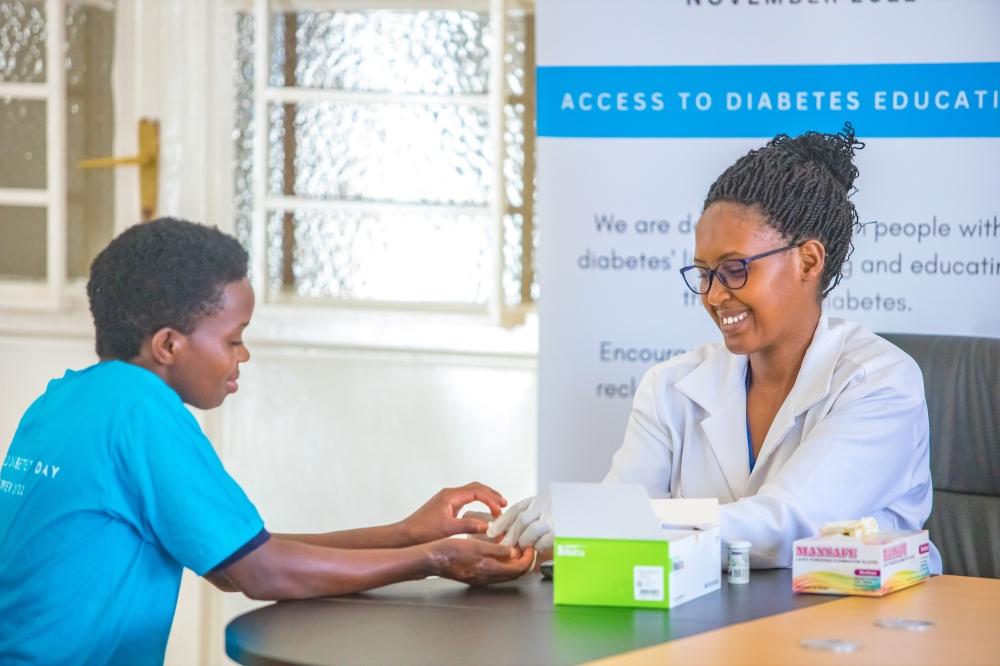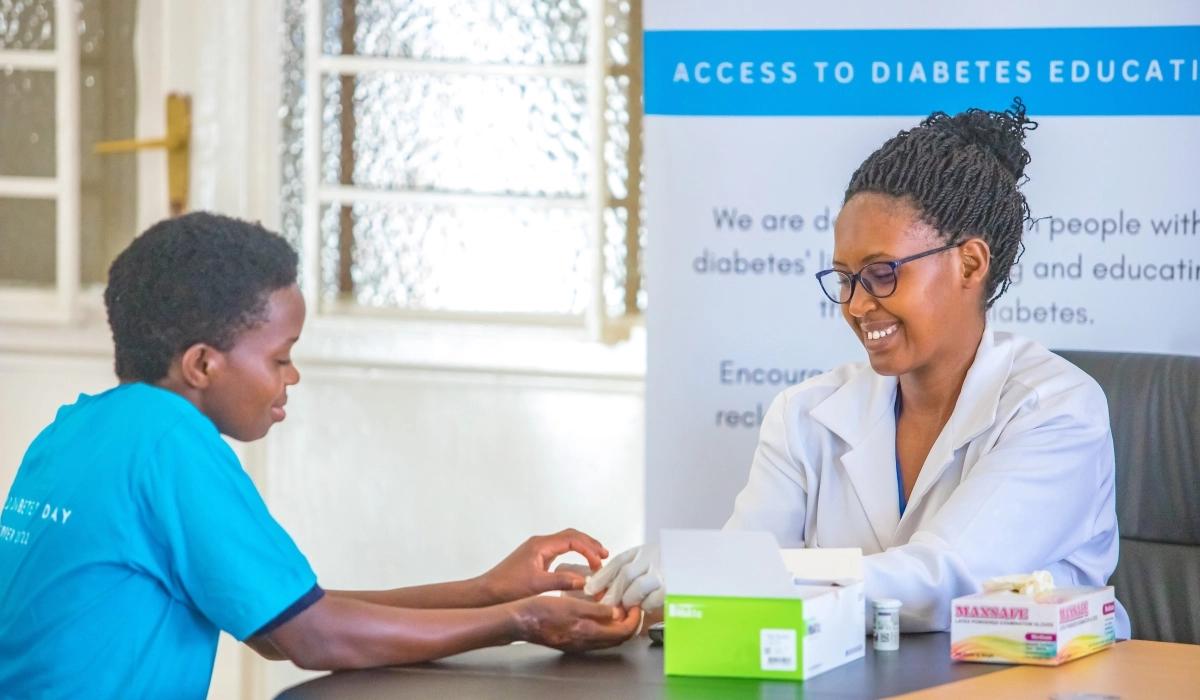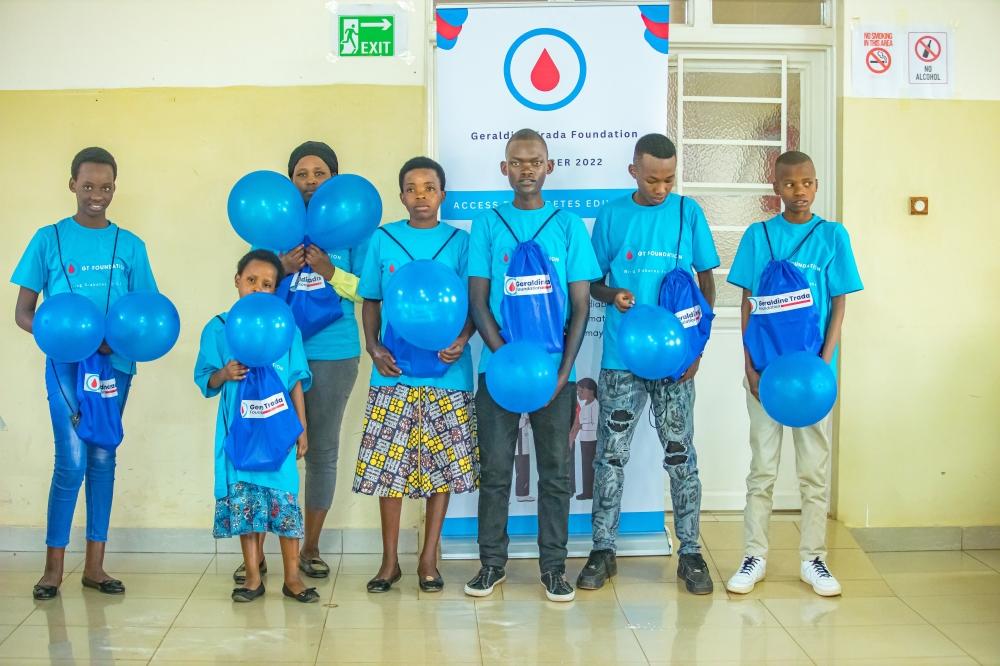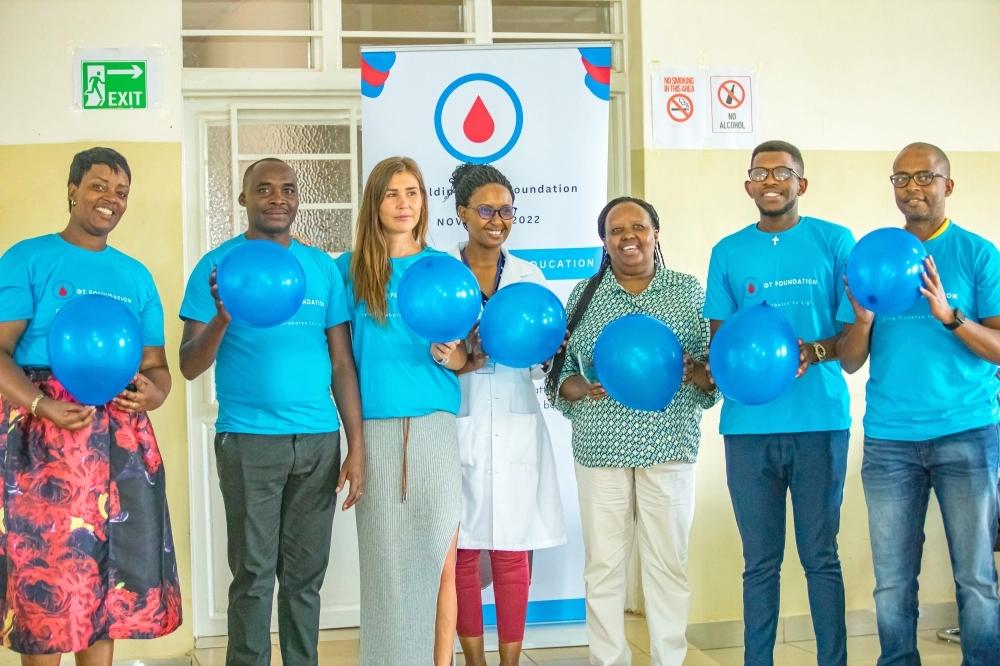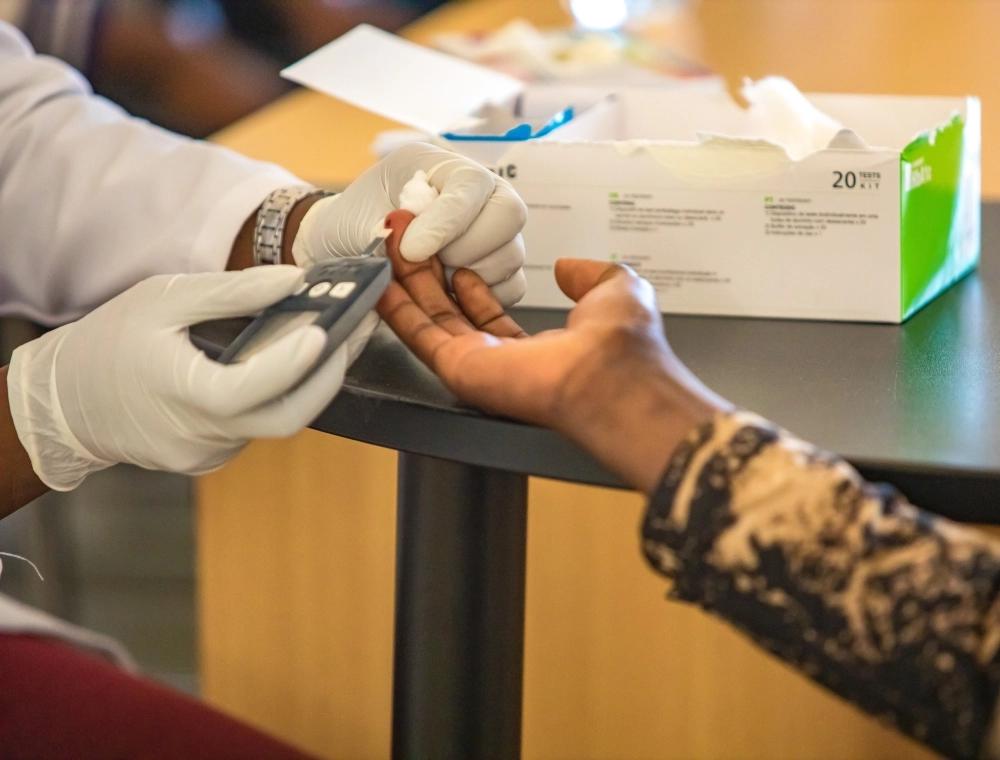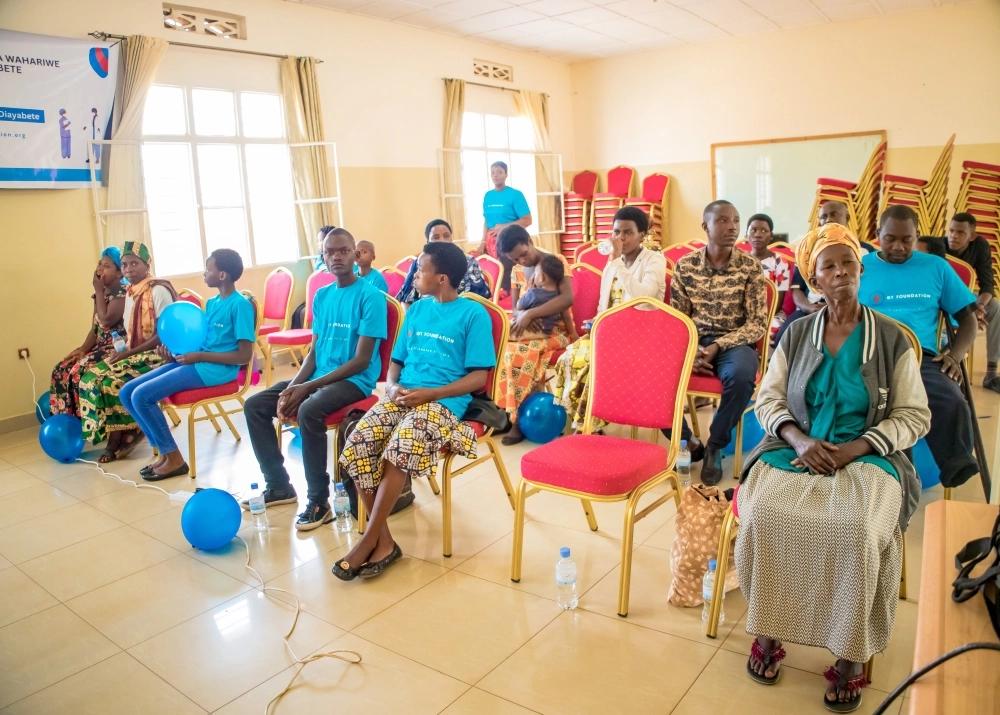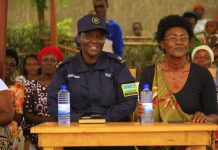Africa-Press – Rwanda. For Benigne Isabane, being empowered with knowledge around his lifetime condition, Type I Diabetes, was the first and most crucial part in making peace with it and choosing to live happily despite what comes with the condition.
Isabane describes diabetes as a condition rather than a disease, that incites one to live differently, but not necessarily ‘sadly.’ “Viewing it this way made me more willing to know and understand diabetes as a condition I would have to live with and then to choose a life that is not limited by what I can’t do,” he said.
Isabane shared his testimony, on Monday November 28, at a gathering that took place at Muhima Hospital, joined by people with Type I Diabetes, their families, activists and medical workers to celebrate World Diabetes Day which is internationally marked on November 14.
This year’s theme was ‘Access to Diabetes Education’ underpinning the larger multi-year theme of ‘access to care.’
Isabane and others shared stories of when they were diagnosed for the first time and their current journeys in terms of acceptance, at the event organised by Geraldine Trada Foundation, a charity which helps people, mostly children, with this type of diabetes to cope with it.
The charity also supports children with Type I Diabetes by covering their medical care, and providing assistance to their family through donating food among other packages.
It was started by Tracey Trada Mutesi, a Rwandan national living in the United Kingdom, after the death of her father due to complications associated with diabetes and the diagnosis of her daughter with Type 1 Diabetes at the age of 12.
In line with the theme, an endocrinologist was invited to discuss the causes of the chronic disease, explain and highlight proper medication administration that could help people to live well and longer with it.
Type I diabetes is caused by a lack of insulin, a hormone produced by the pancreas that helps to regulate blood glucose levels in the body, while Type 2 diabetes is caused by insulin dysfunction or resistance. Hypoglycemia and Hyperglycemia are conditions in which the blood sugar level is too low or too high, respectively, due to a lack of insulin.
In most cases, Type 1 diabetes is inherited, but Type 2 diabetes affects people over the age of 30. Signs and symptoms to look out for include having very dry skin, losing weight easily, feeling very weary or having general body weakness, losing concentration easily, severe hunger or food cravings, feeling thirsty, and the desire to urinate often.
Bora Mukamuhire, a Non-Communicable Diseases (NCDs) Medecine services nurse at Muhima Hospital, advised children with a family history of diabetes to regularly be monitored by a doctor and diagnosed by the age of 8 or slightly older before it is too late.
“We’ve realised that children whose parents are aware of their children’s condition, and are actively willing to learn how best to support them, have better chances of living well with diabetes and are able to fully participate in other activities like school,” she said.
When you are well educated about your type of diabetes, and all the necessary details on the kind of treatment you have to undertake, you are less likely to have any difficulties in your everyday life, she explained.
Isabane also recommended having a support group where everyone encourages one another to have optimism and remain excited about life, no matter how severe their condition may be.
For More News And Analysis About Rwanda Follow Africa-Press

